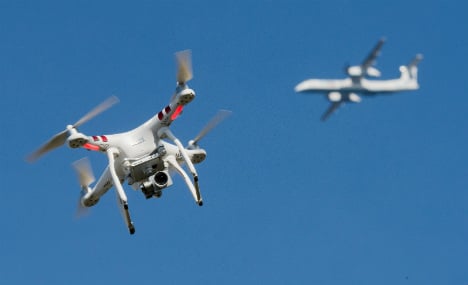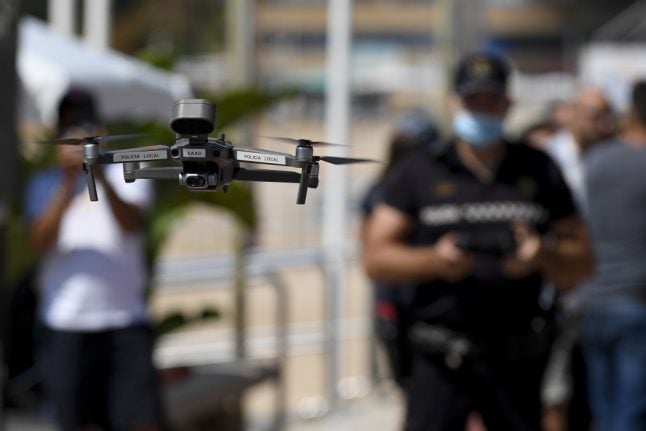In recent years reports of near-collisions between drones and passenger aircraft have become ever more prevalent.
In September 2015 police went on the hunt for the pilot of one of the unmanned aircraft which nearly collided with a commercial airliner at Hamburg airport.
Two months earlier, a Lufthansa aircraft travelling into Warsaw from Munich came within 100 meters of hitting a drone as it landed in Poland.
The Luftfahrtsbundesamt (Federal office for air travel) says that air carriers have reported seven incidents of interference by drones in their flight plans since the unmanned aircraft started appearing in German skies.
While these contraventions of air regulations are clearly the most dangerous, drones are increasingly seen as intrusive by private landowners. Heritage sites find commercial drone use a particular nuisance, and castles and palaces have started banning their use on their properties.
‘Time to act’
“Reports of blatant contraventions of air traffic regulations are becoming ever more prevalent. We realized that now is the time to act,” Silvana Reimann from the traffic authorities in Lower Saxony said.
“The scale of the problem has increased significantly,” Bernd Mühlnickel head of the traffic authorities in Lower Saxony agreed.
“This week alone we received five new complaints,” Reimann’s colleague Maximilian Beck added, saying that by comparison, last year there was only one complaint per month.
“The number of cases is rising dramatically. The drone owners are always breaking the regulations because they don’t know what they are.”
But finding solutions isn’t straightforward.
While the government in Berlin is pondering effective regulations, state authorities, which have responsibility for air traffic in their areas, are having to improvise.
The main problem is that drone owners aren’t currently legally obliged to register their aircraft, meaning that air traffic controllers often don’t know whom the drone belongs to.
But many drone owners provide the answer to this problem by posting video footage of their drone flights online.
“It’s a tedious process,” Reimann explains of how they examine footage. “We look at the pictures on Google and estimate how high the cloud cover was on the day in question.”
Through this method the authorities can calculate how high the drone was, and thereby understand if it went beyond the visual contact with the owner – an important no-no under German remote piloting regulations.
Most infractions recorded by authorities are for flying over churches, industrial areas and motorways, or for flying high enough to breach the visual contact requirement.
One drone pilot received a fine after he boasted online of how he flew his vehicle one kilometer into the sky – a clear contravention of the rules.
Drone pilots tend to pay up on the fines they are handed without complaint, the Lower Saxony authorities say – and many drones contain electronic logbooks, which make it hard for the pilots to dispute the charges laid against them.
Fines which have been given out so far have ranged from €300 to €450 – but authorities have the ability to really put the hammer down, with penalties of up to €50,000 for the most serious offences.
“Only a few pilots seem to know about the regulations – even though they are extensively explained on their authorization papers,” Beck laments.
SEE ALSO: Drone ban at German castles and palaces



 Please whitelist us to continue reading.
Please whitelist us to continue reading.
Member comments